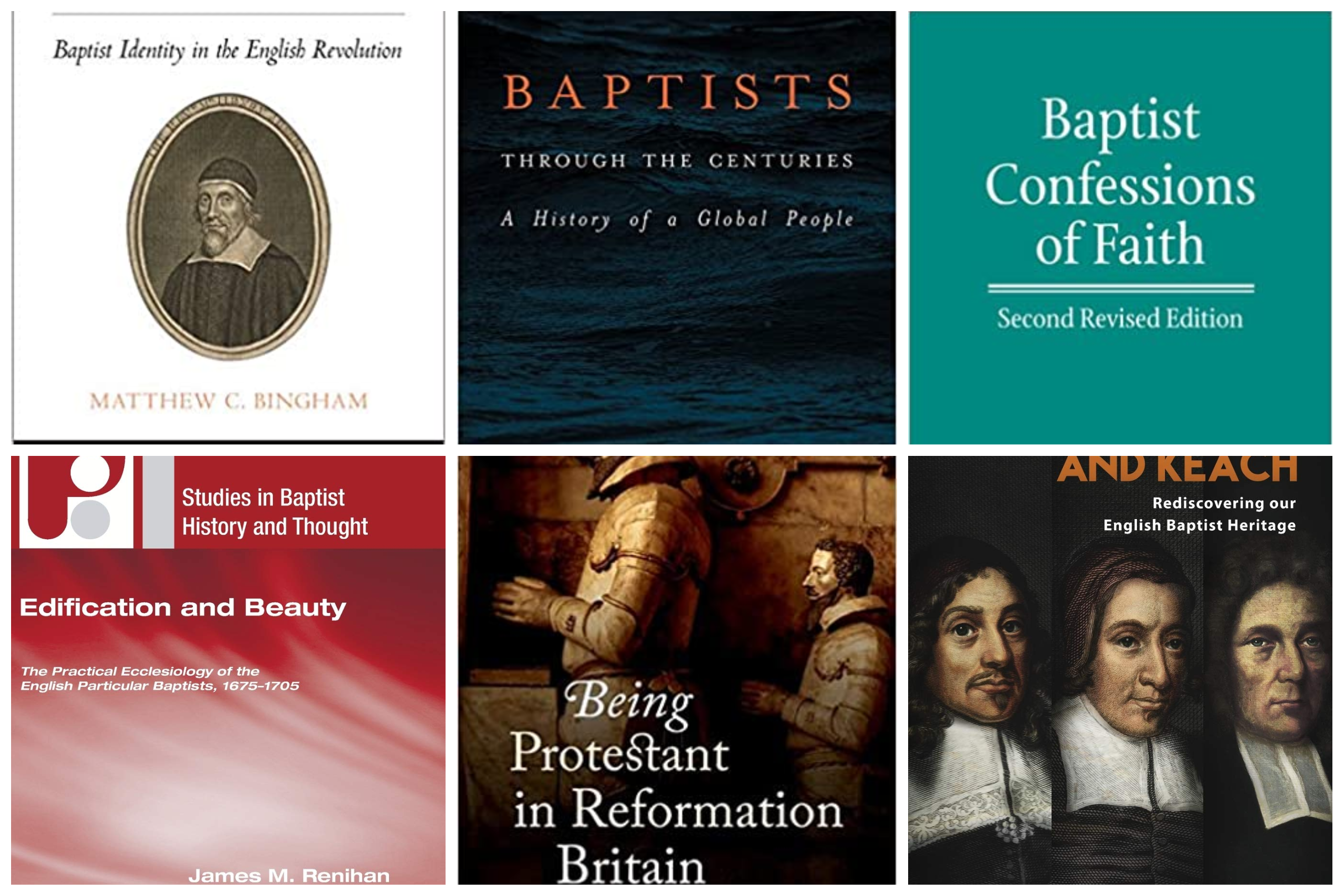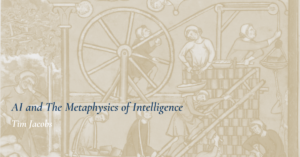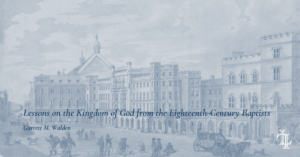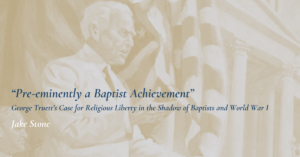Much of the global Baptist movement can trace its roots back to mid-seventeenth-century England. In particular, Reformed or Calvinistic Baptists began here, their earliest churches emerging during the late 1630s and early 1640s as an outgrowth of the antecedent trans-Atlantic Congregational movement. Early Calvinistic Baptists both reflected a wider Puritan religious culture and worked to push that culture in new and radical directions. But, while this is clearly a fascinating and crucial area of study, it can also be incredibly complicated and confusing. The difficulty stems both from the period’s irreducibly complex web of political, cultural, and religious developments, and from an equally daunting history of subsequent interpretation. During the almost three-hundred year span since the first baptistic Congregationalists appeared in England, a bewildering multitude of books on early modern English religion have been published. Thus in an attempt to help make an initial exploration of early English Baptists just a bit less daunting, I have selected ten titles which, taken together, will provide a solid foundation for those looking to dig more deeply into this history.
(1) David Bebbington, Baptists through the Centuries: A History of a Global People (Waco, TX: Baylor University Press, 2010).
Though its geographical and chronological scope extends well beyond early modern England, this book begins our list as an essential entry point. Bebbington is a world-class scholar most famous for his influential work on the nature and history of Evangelicalism, but in this work, he turns his attention towards the formidable task of narrating a global history of the Baptist movement in all of its international diversity. Before entering into a more direct study of early modern English Baptists, one would be well served by taking in something of the wider sweep and scope of the larger movement. To that end, there are few books as helpful as Bebbington’s.
(2) Mark Kishlansky, A Monarchy Transformed: Britain 1603-1714 (London: Penguin Books, 1997).
If one really wishes to understand seventeenth-century English Baptists, one must first have some grasp of seventeenth-century England. Those already in possession of such background information can happily skip to the more Baptist-centric recommendations below, but for those unclear or just looking to refresh their memories, I can think of no finer single volume survey of seventeenth-century England than Kishlansky’s A Monarchy Transformed. Masterfully organized and sharply argued, this is a fantastic introduction to the period.
(3) Alec Ryrie, Being Protestant in Reformation Britain (Oxford: Oxford University Press, 2013).
Like the preceding selection, this is not a book about early modern English Baptists per se. Rather, it is a deeply researched and delightfully written exploration of, as the title suggests, what it felt like to be a committed Protestant Christian in Reformation and post-Reformation era Britain. Surveying how early modern English men and women approached prayer, Bible reading, worship, death, and much more, few books better capture the texture and spirit of the period’s religious culture. If one wishes to enter into the mind of early modern Baptists, one will be helped to remember that they were, in the first instance, post-Reformation British Protestants, and, as such, whatever their distinctive contribution, they shared in and were shaped by their wider cultural and religious milieu.
(4) Michael Haykin, Kiffen, Knollys, and Keach: Rediscovering Our English Baptist Heritage. 2nd ed. (Peterborough, Canada: H&E Publishing, 2019).
Turning now to books that specifically treat early English Baptists, Haykin’s study offers a fine place to begin. Originally released in 1996, this work has served a diverse range of readers as an accessible introduction to the early modern period and some of its most significant baptistic leaders. Happily, a second, expanded edition of the book was released in 2019 featuring both a new chapter on John Norcott and the mode of baptism, and an appendix in which Haykin has helpfully reprinted a brief treatise by the relatively obscure Calvinistic Baptist Thomas Wilcox.
(5) Murray Tolmie, The Triumph of the Saints: The Separate Churches of London, 1616-1649 (Cambridge: Cambridge University Press, 1977).
Though somewhat dated now in terms of historical scholarship, Tolmie’s book is a well-researched and engagingly presented guide to the social, political, and religious milieu out of which the earliest Calvinistic baptistic churches emerged. Tolmie’s monograph has become a standard work amongst historians of the period and one does not have to read very far into it to figure out why.
(6) Matthew C. Bingham, Orthodox Radicals: Baptist Identity in the English Revolution (New York: Oxford University Press, 2019).
My own entry into this list unpacks the origins of Calvinistic Baptists in early modern England and attempts to explain the logic of their thought within the context out of which it arose. While other works have done a fine job tracing the course of key figures, events, and publications within the movement, Orthodox Radicals deals with the self-identity of those involved: who did they imagine themselves to be and where did they situate themselves on the rapidly changing mid-seventeenth-century religious map? I argue that a neglected yet key component of Baptist identity during the period is the way in which the men and women subsequently labelled as “Particular Baptists” understood themselves, in the first instance, as representatives of the Congregational Way. By beginning with this insight, we are better positioned to understand how they interacted with other groups, how they described themselves in their publications, and even how they first came to their revolutionary decision to abandon paedobaptism.
(7) James M. Renihan, Edification and Beauty: The Practical Ecclesiology of the English Particular Baptists, 1675-1705 (Eugene, OR: Wipf and Stock, 2009).
While anything written by James Renihan is well worth reading, this volume is especially meaningful to me as it was the book through which I first developed a more serious historical interest in the early English Baptists. Displaying his characteristic precision and attention to detail, Renihan provides a wealth of information and analysis pertaining to the specific ways in which late-seventeenth-century Calvinistic Baptists approached and organized church life.
(8) Samuel D. Renihan, From Shadow to Substance: The Federal Theology of the English Particular Baptists (1642-1704), (Oxford: Regent’s Park College, 2018).
Samuel Renihan’s meticulous study examines the emerging baptistic covenant theology of the seventeenth century. The decision by early English Baptists to abandon the Christendom-consensus on infant baptism was profoundly connected to considerations of the biblical covenants and how they interrelate. During this period, federal theology was developing rapidly all across the Reformed world, and Renihan’s work offers a ground-breaking look at the distinctive ways in which baptistic Congregationalists contributed to that ongoing, wider conversation.
(9) William L. Lumpkin, Baptist Confessions of Faith. 2nd rev. ed. / revised by Bill J. Leonard (Valley Forge, PA: Judson Press, 2011).
We conclude this list with two volumes that draw together vital primary source documents. This substantial collection of baptistic confessional statements is a must-have for any serious enquiry into the development of early modern English Baptists. While one may quibble with some of the editorial interpretations, the documents themselves, collected in one place and cleanly presented, are invaluable.
(10) James M. Renihan, ed. Faith and Life for Baptists: The Documents of the London Particular Baptist General Assemblies, 1689-1694 (Palmdale, CA: Reformed Baptist Academic Press, 2016).
Like the Lumpkin volume above, Faith and Life for Baptists presents primary source documents relating to the development of seventeenth-century English Baptists. These documents, however, go beyond those available in Lumpkin and are more narrowly focused on the events leading up to and following on from the publication of the Second London Confession of Faith. Read together, they provide indispensable insight into the maturation of early modern English Baptists at the close of the seventeenth century.
Author
-

Matthew C. Bingham (PhD, Queen's University Belfast) teaches systematic theology and church history at Oak Hill College (UK) and his research focuses primarily on religion in early modern England. Originally from the United States, he studied history at UCLA and received his Master of Divinity from Princeton Theological Seminary. He is also a Fellow of the Royal Historical Society. Matthew is the author of Orthodox Radicals: Baptist Identity in the English Revolution (2019, OUP) and has published peer-reviewed articles in The Journal of Ecclesiastical History, The Journal of the Institute of Reformed Baptist Studies, The Seventeenth Century, Church History: Studies in Christianity and Culture, Themelios, and the Journal of British Studies (forthcoming). He has also co-authored On Being Reformed: Debates over a Theological Identity (2018, Palgrave Macmillan). Before coming to Oak Hill, Matthew served as a pastor in the United States and Northern Ireland, and he aims to equip students for ministry by encouraging careful, historically informed theological reflection. He is married to Shelley and they have three children: Amelia, John, and James.
View all posts



